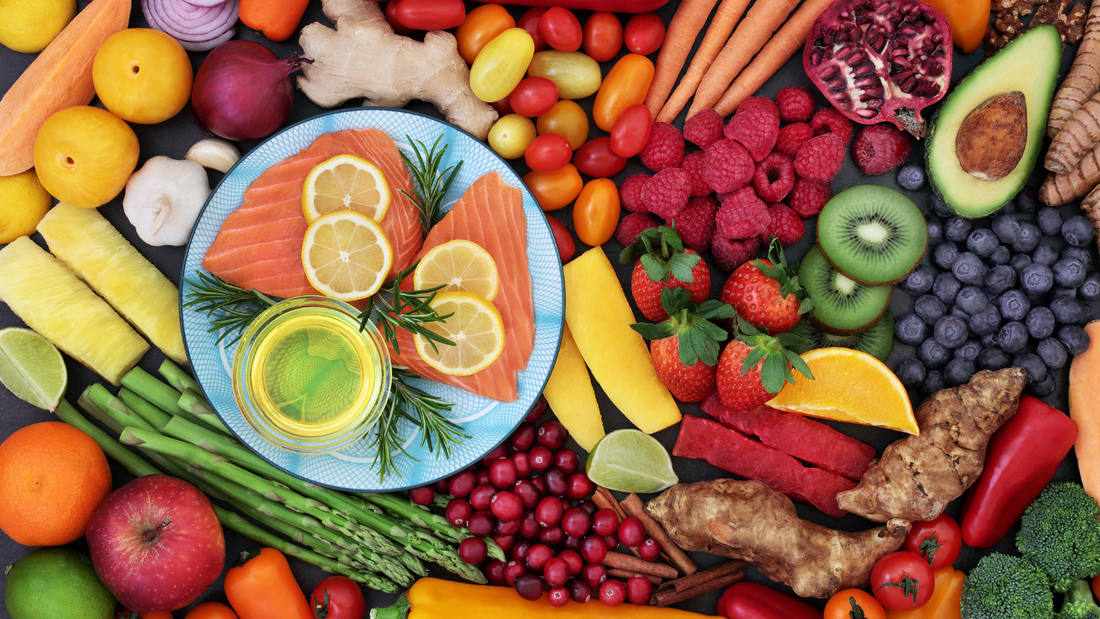When it comes to optimizing your health, understanding the essential nutrients your body needs is crucial. These nutrients are the building blocks of well-being, supporting various bodily functions. In this article, we'll delve into the top five essential nutrients your body requires and offer guidance on how to ensure you're getting an ample supply through your diet.
1. Protein - Your Body's Building Block
Protein is often referred to as the body's building block, and for good reason. It plays a pivotal role in tissue growth, repair, and maintenance, and is essential for the production of enzymes, hormones, and antibodies.

How to Get Enough Protein:
- Lean meats such as chicken, turkey, and fish are excellent sources of high-quality protein.
- Plant-based sources like legumes (beans, lentils), tofu, and tempeh are great options for vegetarians and vegans.
- Dairy products, eggs, and nuts are also protein-rich choices.
2. Vital Vitamins - Essential for Health
Vitamins are organic compounds critical for various metabolic processes. The top essential vitamins include vitamin A, vitamin C, vitamin D, vitamin E, and vitamin K.
How to Get Enough Vitamins:
- Vitamin A: Found in foods like sweet potatoes, carrots, and leafy greens.
- Vitamin C: Abundant in citrus fruits, strawberries, bell peppers, and broccoli.
- Vitamin D: Your skin can produce vitamin D when exposed to sunlight, and it's also found in fatty fish, egg yolks, and fortified foods.
- Vitamin E: Nuts, seeds, and vegetable oils are rich sources of this vitamin.
- Vitamin K: Leafy green vegetables, broccoli, and Brussels sprouts are high in vitamin K.
3. Minerals - The Body's Foundation
Minerals are inorganic nutrients essential for maintaining proper fluid balance, energy production, and building strong bones and teeth. Key minerals include calcium, potassium, magnesium, and iron.
How to Get Enough Minerals:
- Calcium: Dairy products, fortified plant-based milk, and leafy greens like kale and broccoli are excellent sources.
- Potassium: Bananas, sweet potatoes, and spinach are rich in potassium.
- Magnesium: Found in foods like nuts, seeds, whole grains, and leafy greens.
- Iron: Red meat, poultry, fish, and fortified cereals provide heme iron, while non-heme iron is present in plant-based sources like beans, lentils, and fortified foods.
4. Carbohydrates - Fuel for Your Body
Carbohydrates are your body's primary source of energy. They come in two main types: simple carbohydrates (sugars) and complex carbohydrates (starches and fiber). Choosing the right carbohydrate sources is crucial for stable blood sugar levels and overall health.

How to Get the Right Carbohydrates:
- Opt for whole grains like brown rice, whole wheat bread, and quinoa, which provide complex carbohydrates and fiber.
- Enjoy a variety of fruits and vegetables to get essential vitamins, minerals, and fiber.
- Limit added sugars found in sugary drinks, candies, and processed foods.
5. Healthy Fats - Vital for Wellness
Dietary fat is often misunderstood, but healthy fats are essential for the body. They provide concentrated energy, support the absorption of fat-soluble vitamins, and are necessary for essential fatty acids.
How to Get Healthy Fats:
- Choose unsaturated fats found in olive oil, avocados, nuts, and seeds. These fats can reduce the risk of heart disease.
- Limit saturated and trans fats found in processed and fried foods, as excess consumption can contribute to heart issues.
In addition to these essential nutrients, your body requires water to function properly. Staying hydrated is critical for maintaining overall health, as water is involved in nearly every bodily process, from digestion to temperature regulation.

Additional Tips for Meeting Nutritional Needs:
- Eat a Rainbow: Different colors of fruits and vegetables represent various nutrients. Include a diverse range in your diet for optimal health.
- Balance Macronutrients: Ensure your diet includes a balance of carbohydrates, proteins, and fats, each serving specific purposes in your body.
- Mind Your Portions: Pay attention to portion sizes to avoid overeating and maintain a healthy weight.
- Cook Nutrient-Rich Foods: Opt for cooking methods like steaming, baking, and grilling over frying to preserve nutrient content.
- Stay Informed: Nutritional needs vary by age, gender, and activity level. Stay informed about your specific requirements to tailor your diet accordingly.
- Consider Supplements: In some cases, supplements may be necessary to meet your nutrient needs. Consult a healthcare professional before taking any supplements to ensure they align with your health goals. Check out our supplements here.
In conclusion, understanding the top essential nutrients your body needs and how to obtain them is fundamental to achieving and maintaining good health. A well-balanced diet rich in a variety of foods is key to ensuring you receive all the necessary nutrients required for a vibrant and energetic life. Your body is a remarkable machine, and the fuel you provide through your diet plays a significant role in how it functions. So, nourish yourself wisely, and you'll reap the rewards of a healthier, more fulfilling life.

